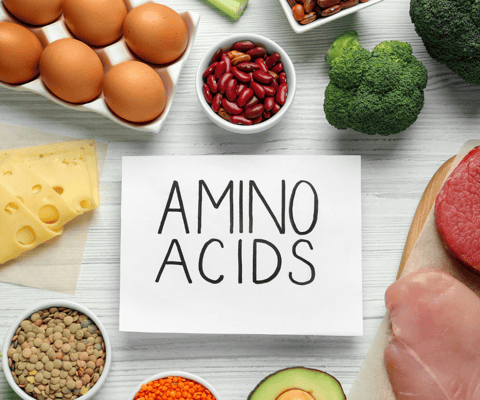The Role of Amino Acids
Amino acids, the building blocks of proteins, are vital for numerous bodily functions.
Amino acids, the building blocks of proteins, are vital for numerous bodily functions.
Here's a closer look at their pivotal role:
Protein Synthesis: Amino acids are fundamental for constructing proteins, crucial for building and repairing tissues. The body requires 20 different amino acids, 9 of which are considered essential as they can't be synthesised by the body and must be obtained from diet.
Tissue Repair and Growth: Amino acids facilitate tissue repair, muscle growth, and maintenance. They are essential for athletes and individuals engaging in physical activities to support muscle recovery and growth.
Metabolic Processes: These compounds play a role in metabolic pathways, aiding in the digestion and absorption of nutrients, as well as facilitating hormone production and enzymatic reactions.
Boosting Immunity: Certain amino acids support immune function, assisting in the production of antibodies and contributing to a robust immune system.
Neurotransmitter Production: Amino acids are the precursors to neurotransmitters that regulate mood, cognition, and sleep. Their presence is critical for mental well-being.
Incorporate protein-rich foods such as meat, fish, dairy, legumes, nuts, and seeds into your diet to ensure an adequate supply of amino acids for optimal health.
Amino acids are integral to overall well-being, emphasising the importance of a balanced diet that includes sufficient protein sources.


